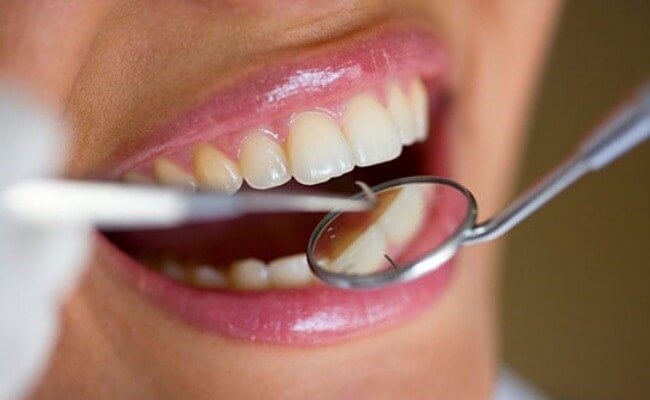Negative Effects of Gluten on Dental Health
What is Gluten?
Gluten is a protein found in such foods as wheat, spelt, Kamut, rye and barley.1 Although it may not be a serious concern for many, for millions of American, and about 1% of the worldwide population2, gluten triggers a cascade of autoimmune reactions that can result in a variety of serious symptoms. It only takes a short walk down the aisle of the local grocery store to see that gluten free products are everywhere. But why would that be and how is it relevant to dental health?
Gluten Sensitivity
 Gluten sensitivity is widely underdiagnosed in our population and often people with more advanced reactions seek diagnosis and treatment. The type of response to gluten is a hallmark of celiac disease, a condition that results in profound malabsorption and impacts multiple systems including oral and dental health.
Gluten sensitivity is widely underdiagnosed in our population and often people with more advanced reactions seek diagnosis and treatment. The type of response to gluten is a hallmark of celiac disease, a condition that results in profound malabsorption and impacts multiple systems including oral and dental health.
Due to gluten being the trigger, celiac disease is also referred to as gluten sensitive enteropathy (GSE).3
For those who suffer from celiac disease, enamel defects are one of the most common dental symptoms.1 Another oral manifestation of celiac disease is recurrent painful mouth ulcers, also known as recurrent aphthous stomatitis (RAS). This condition is s one of the top five presenting symptoms of celiac disease2. Again, the gluten-induced damage to the small intestine with its resulting malabsorption has been implicated in this oral manifestation of celiac disease. Specifically, inadequate levels of iron, folic acid and B12 are thought to contribute to the development of RAS.1
Dental and Oral Manifestations of Celiac Disease
 The autoimmune cascade triggered by gluten in those with celiac disease can also cause several other dental and oral manifestations including the following 1-3:
The autoimmune cascade triggered by gluten in those with celiac disease can also cause several other dental and oral manifestations including the following 1-3:
- Inflammation of the tongue
- Burning sensation in the tongue
- Delayed tooth eruption
- Increased risk of tooth decay
- Reduction in the size of teeth
- Oral lichen planus (inflammation of the mucous membranes inside the mouth)
- Abnormal function of the salivary glands
- Lingua geografica (“Map-like” appearance of the tongue due to areas that are particularly smooth)
- Cheilitis (inflammation of the lips
Gluten and Oral Health

But what about those who don’t have celiac disease. Is there cause for concern with regards to gluten and oral health?
The paleo diet would argue that yes, gluten-containing foods can pose a problem even in the absence of full-blown celiac disease.4 Why is this? Well, in terms of human evolution, gluten-containing grains have been introduced into our diet relatively recently.
Our bodies simply haven’t had the time to adapt to these foods. Instead, our immune systems sensing something “foreign” in our digestion track, do their job and mount an inflammatory response against the proteins that are so new to our systems.
These proteins include gluten but also wheat germ agglutinin and amylase trypsin inhibitors.4 This response is made worse when the grains are accompanied by other pro-inflammatory ingredients such as refined sugars and processed oils. Suddenly the cookie you had at lunch is wreaking havoc within your body. The inflammatory response can move beyond its original locations (your digestive system) by releasing chemicals that spread throughout the body. This, in turn, can contribute to serious health conditions like heart disease and type II diabetes. And our oral health doesn’t escape the negative consequences of agricultural grains.
How does Gluten Affect our Oral Health?
That is because these grains are a rich source of carbohydrates5 which can contribute to acid conditions in the mouth. The acids in turn can cause dental decay and, eventually, gum disease (gingivitis).
Gingivitis can, in turn, worsen the inflammatory processes occurring in the other areas of the body, including the vessels of the heart. It’s enough to make anyone want to think twice before sitting down to a bowl full of spaghetti. Thankfully, the paleo diet offers an alternative to the typical, grain dominated diet of the Western world. It also explains why there is some evidence that our “paleo” ancestors were spared the dental decay associated with eating grains. Over time, as grains were introduced into our diet, so too was dental decay. And remember, it is not only refined grains that chips away at oral health, even wild grown grains can give our teeth a run for their money.6 With time and attention, the paleo principles can be life-altering. They open the door to a diet that is delicious while offering significant health benefits. One of these benefits is helping protect you (and your teeth!) from the inflammation that can be triggered by eating a typical grain-rich western diet. A switch to a paleo/ancestral diet can take some time and planning but even small changes are a step in the right direction. Starting by replacing some of the wheat in your diet with paleo positive foods. Wrap your hamburger in a big juicy lettuce leaf instead of a white flour bun. Your teeth will thank you!
Sources
- van Gils T, Brand HS, de Boer NKH, Mulder CJJ, Bouma G. Gastrointestinal disease, and their oro-dental manifestations: Part 3: Coeliac disease. Brit Dent J 2017;222(2):126-129.
- Pallagati S, Sheikh S, Aggarwal A, Singh R, Gupta D, Kaur S. Dental considerations of celiac disease – a case report. Int. J. Dent. Clinics 2012;4(4):66-68.
- Rashid M, Zarkadas, M, Anca A, Limeback H. Oral manifestations of coeliac disease: a clinical guide for dentists. J Can Dent Assoc 2011;77:b39.
- https://paleoleap.com/11-ways-gluten-and-wheat-can-damage-your-health/
- http://thepaleodiet.com/tag/dental/
- http://www.wheatbellyblog.com/2013/04/teeth-and-grains-dont-mix/